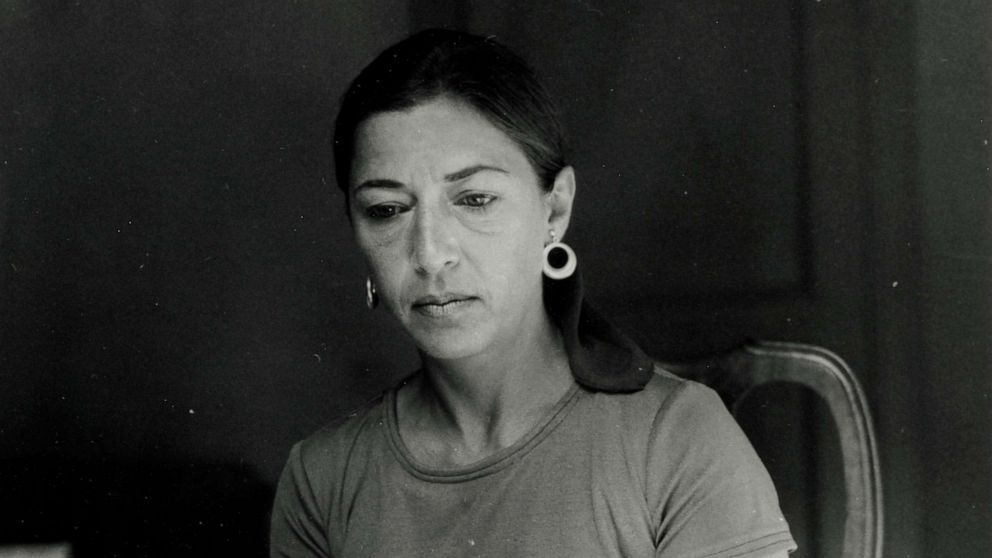


The death of Supreme Court Justice Ruth Bader Ginsburg, the second woman to sit on the high court, felt like a personal loss to generations of American women, as well as young girls.
"For women, she was the most important legal advocate in American history. She changed the way the law sees gender," said Abbe Gluck, a Yale Law School professor and former clerk of Justice Ginsburg. "The United States Supreme Court did not even recognize that the constitution prohibits discrimination based on gender until 1971 -- and that's Justice Ginsburg's case."
In the 1970s, the young Ginsburg "convinced the entire nation, through [her arguments at the] Supreme Court, to... adopt the view of gender equality where equal means the same -- not special accommodations for either gender," Gluck told ABC News.
MORE: Ruth Bader Ginsburg, powerhouse Supreme Court Justice, dies at 87"It's astonishing from our modern vantage point to think that Supreme Court recognition for constitutional equality of women is only 50 years old," she said.
Ginsburg, who was appointed to the Supreme Court in 1993, led the court's liberal wing after Justice John Paul Stevens' 2010 retirement, which was "incredibly meaningful" for women to see, Gluck said.
After Sandra Day O'Connor -- the Supreme Court's first female justice -- retired in 2006, and before Justice Sonia Sotomayor joined the court in 2009, Ginsburg was the only woman on the Supreme Court.
Those years as the only woman marked some of Ginsburg's "most powerful dissents," like in 2007's Gonzales v. Carhart, when she defended abortion rights and "chided Justice Kennedy for his paternalism," Gluck said.
Ginsburg wrote in her dissent, "the court deprives women of the right to make an autonomous choice, even at the expense of their safety. This way of thinking reflects ancient notions about women’s place in the family and under the Constitution -- ideas that have long since been discredited.”
From early on, Ginsburg was a trailblazer for women.
In the 1950s, Ginsburg went to Harvard Law School, where she was one of nine women in a class of 500 students. There she became the first female member of the Harvard Law Review.
Ginsburg later transferred to Columbia University Law School after her husband got a job in New York City. When Ginsburg graduated at the top of her class in 1959 without a job offer from a New York law firm, she accepted a clerkship with a Manhattan federal judge.
Ginsburg also pursued the law through academia. When she joined the faculty of Rutgers University in New Jersey, she became one of the first women to teach at any American law school. At Columbia Law School, Ginsburg became the school's first female tenured professor.
For women in the law, Ginsburg's story is especially meaningful -- both for those near her own generation, who "suffered from the same discrimination in education and unemployment as she did," but also those in the generations to follow, because she broke "all of those barriers for all of us that came after her," Gluck said.
Sen. Elizabeth Warren tweeted Friday, "As a young mom heading off to Rutgers law school, I saw so few examples of female lawyers or law professors. But Ruthie blazed the trail. I’m forever grateful for her example — to me, and to millions of young women who saw her as a role model."
MORE: Politicians, celebrities react to death of Ruth Bader GinsburgGluck, who clerked for Ginsburg in the 2003 term, said the legendary lawyer "was an extraordinary mentor to all of her law clerks. She cared deeply about our work lives and our personal lives. She got to know our children."
"She demanded a lot of us because she demands more from herself," Gluck continued.
"She taught me how to be a lawyer," Gluck said. "She taught me what it means to lead a life committed to the causes of social justice."
"And on a personal level, she and her husband, Martin, modeled what it means to be in an equal marriage, an equal parenting relationship," Gluck said.
Ginsburg met her husband, who also became a lawyer, as a Cornell University undergraduate. Martin Ginsburg died from cancer in 2010 after 56 years of marriage.
"They had a marriage for the ages," Gluck said, "and she role modeled that as much to us as she role modeled the law."
"I think it is absolutely extraordinary that Justice Ginsburg was both a hero to the women of the 1970s and then an icon to the little girls of today," Gluck noted. "She was an amazing teacher and her influence remains with me today and will remain with me forever."
ABC News' Devin Dwyer contributed to this report.